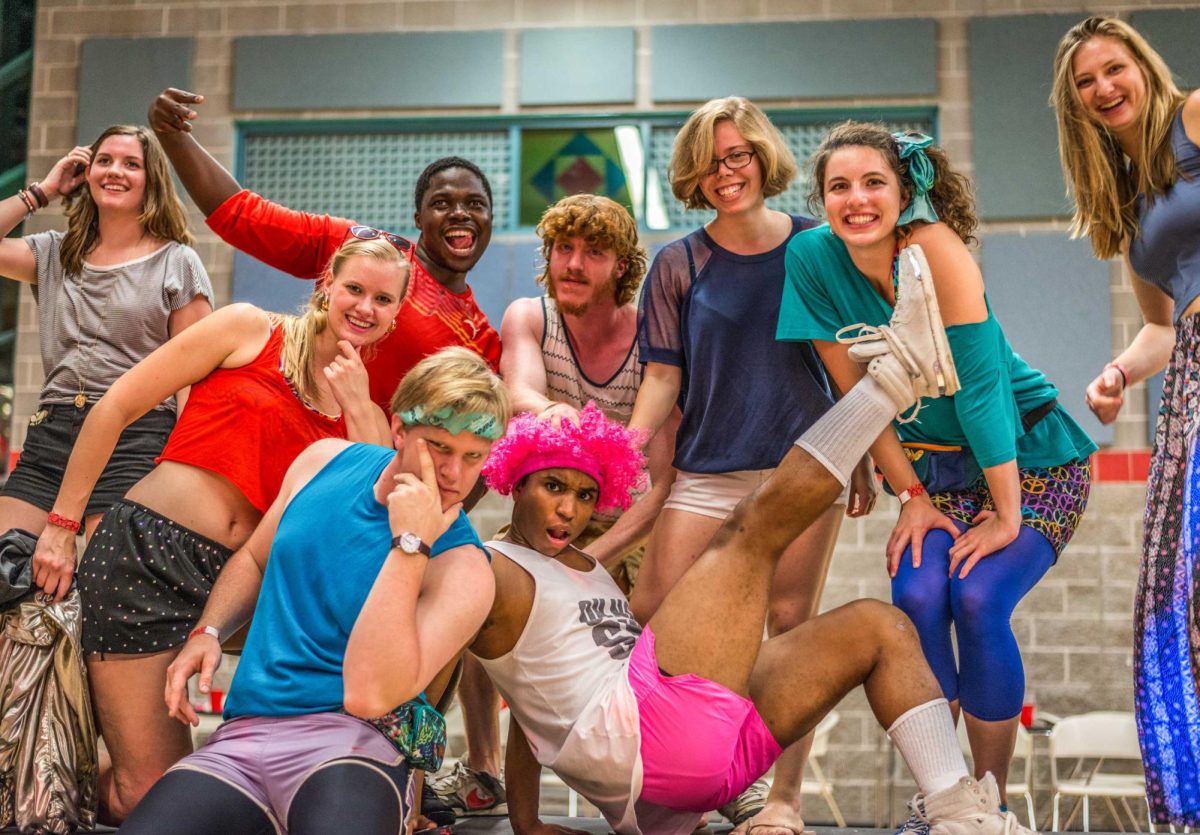A year ago, a group of student activists met and formed the No Limits Project (NLP), a student group that aimed to push the administration to maintain commitments to social justice, among other reforms. The group published a list of demands sent to President Russell K. Osgood—demands that it has been working to achieve for the past year.
“The No Limits Project has come a long way since the 14 demands were proposed by kind of a core group of students, and supported by over 200 students who expressed their support in a petition we circulated. I think within 48 hours we got over 300 signatures,” said Margie Scribner ’10, an NLP member, said.
Three large demands have been met since the group was first active, including the creation of AJust—a peer education program created to tackle social justice issues in the community.
AJust, many of whose members are also in NLP, has worked closely with Student Affairs to secure funding and to bring in facilitators to assist training peer educators.
“We’re obviously looking for a greater financial commitment from the administration, but right now we’re able to do the types of programming we want to do with the money that we’ve been allocated,” Scribner said.
The administration said they have lent support to AJust and supported them throughout the process.
“The first two projects (social justice training—AJust—and hate crimes/bias incident response) were ideas that we had hatched and begun working on in Student Affairs before NLP existed,” said Vice President of Student Affairs Houston Dougharty in an e-mail.
NLP also demanded the drafting and implementation of a Bias-Motivated Incident and Hate Crimes Response policy—which was finally created last semester and enacted in November 2009.
A further demand called for Grinnell to renew its commitment to environmental sustainability and power the campus with a wind turbine. While the turbine itself has been approved, and planning for it is in its initial stage, the greatest obstacle to work on the turbines is the prohibitive cost.
“I can’t snap my fingers and find $7 million, which is roughly what it will cost,” Osgood said.
To address this, NLP worked with SGA, Free The Planet and the Senior Challenge Committee to add a Green Giving option to the senior challenge form.
Progress on the demands has not been without setbacks, as NLP encounters the challenges of dealing with any bureaucratic administration.
“I think especially the demands that don’t involve any financial commitment are ones that could’ve been and probably should’ve been acted on faster,” Kaitlin Alsofrom ’10, who is involved with NLP, said.
The Hate Crimes Response protocol along with the wind turbines were seen as prime examples of demands that some members of NLP thought could have been met in a more timely fashion.
“[It’s frustrating] when people say, ‘Well, we’re working on it,’ and that’s the end of it, as though we’re just supposed to accept that without asking for any notification of any results of whatever it is that’s being worked on, or being included in any of the processes that are being worked on,” Jared Rubinstein ’10, a member of NLP, said.
However, there has not been official collaboration between NLP and the Office of the President nor Student Affairs within the last year.
“Nothing official with NLP folks,” said Dean of Students Travis Greene.
“I know the premise of No Limits was here are some things from their perspective that could’ve immediately been done or implemented, but things are organic and they do take some time,” Greene said.
Despite such obstacles, the project will continue by recommitting itself to a one of their original demands—need-blind admission for international students.
“Several years ago we actually did have need blind admission to international students,” Alsofrom said.
Now, only domestic students are admitted on a need-blind basis. Although the college maintains its commitment to meeting 100 percent of demonstrated need to all students, that need is taken into account when international students are admitted.
“We’re in the initial works of this, figuring out why that policy was changed, what we would need to do to get it back to need-blind admission where it was several years ago,” Alsofrom said.
Student response to the No Limits Project and its methods was initially mixed—despite much obvious support through the signatures, many students felt that the organization was being too aggressive, or acting unnecessarily, an idea that appears to have faded with time as the organization’s successes and goals have become more clear.
“I just remember going to Joint Board when the No Limits people were presenting, and they were being very aggressive in their language towards SGA. I just remember them saying, ‘We demand this, and we demand that,’” Ana Mancebo ’12 said.
These sentiments manifested through the formation of an opposing group entitled No Shame, which attempted to shift student focus towards beneficial things that the administration had done for students while still acknowledging that work needs to be done, refer to the April 10, 2009 S&B for information.
However, now, seeing that progress has been made in many areas, there is acceptance of them among students who were dubious of NLP, although alienation due to their perceived aggression remains, and many underclassmen have no idea who they are.
“In retrospect, it seemed like they were asking for a lot and potentially in the wrong way when they started off, and I guess after seeing they have made some compromises that have given them some of the things they asked for, I can see that it may have been useful,” Isaiah Iboko ’12 said.


















































